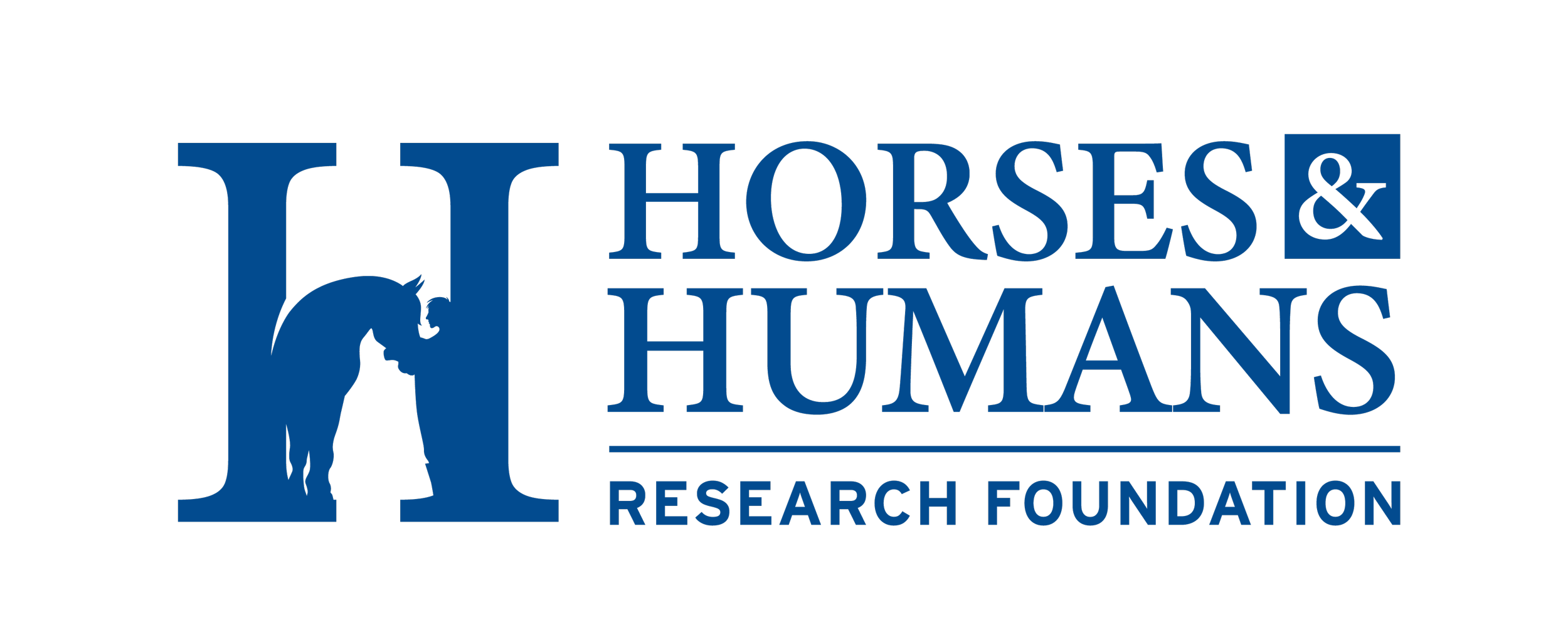For Immediate Release
Contact: Ken Boyden, JD, EdD, Executive Director, Horses and Humans Research Foundation
PO Box 23367
Chagrin Falls, OH 44022
Email: info@horsesandhumans.org
Web: http://www.horsesandhumans.org
Horses and Humans Research Foundation Welcomes Three New Board Members Committed to Advancing Human-Equine Research
Chagrin Falls, Ohio, March 14, 2019. Horses and Humans Research Foundation (HHRF) welcomes three new members to their board of directors. Nancy Coyne, MD, Nancy Paschall and David Schmutz recently joined the board bringing a variety of skills and expertise to support this equine assisted activity and therapy (EAA/T) research focused mission.
Nancy Coyne, MD is a Board Certified Psychiatrist with 40 plus years experience. She has been doing equine facilitated psychotherapy since 2005 in Maine and Arizona. She works with individuals, families and small groups with the horses to help the humans heal from trauma, manage emotional turmoil and connect with nature and themselves. Her work incorporates yoga, art making and sharing with the powerful work of the horse herd.
Nancy Paschall is a life-long horse person having shown western, hunters, jumpers, and Tennessee Walking Horses, which she has also bred and trained. She was an avid 4-H'er. She has been leading EAAT organizations for 12 years, including being part of several research teams. She is a Walking Horse Owners and Exhibitors Association Certified Judge and a PATH Equine Specialist in Mental Health and Learning. She received her B.S. in psychology from Old Dominion University and went onto become a family therapist as well as a policy analyst. She is currently working on her MBA from St. Andrews University.
David Schmutz’s educational background includes AB Pitzer College (1975) in Classical Studies, Claremont Graduate School (1977) MBA. David spent his career in real estate (Colwell Banker, Bixby Ranch Company) before acquiring the Paddock Riding Club in 1986. This provided the necessary experience in working with horses and individuals through various disciplines. He currently has his Senior accreditation in Dressage (‘S’) and his 4* from the ‘Federation Equestre Internationale’ (FEI) in Para Equestrian competition.
These new members will join in procuring future sustainability and direction for HHRF. Nancy Paschall expressed the board’s commitment when she said “Outcomes are validated by research and as equine assisted activities and therapies become increasingly well-known it is crucial that research that leads to the development of best practices be supported and disseminated. Relationships with horses are life-changing; now we have to gather the evidence!”
HHRF’s Executive Director, Ken Boyden, JD, EdD, states “HHRF continues to be so very grateful to our board volunteers. We are the beneficiary of the expertise and commitment of our dedicated board members. Our latest board members are illustrative examples of our great volunteers! Together, we will move forward to impact and influence horses and humans research in the 21st century.”
###
Mission: Through sustained investment in rigorous research, HHRF serves as a catalyst to advance global knowledge of horse-human interactions and their impact on health and wellness.
Horses and Humans Research Foundation (HHRF) is dedicated to funding research to investigate the equine-assisted activities and therapies field. Since its founding, HHRF has awarded over $600,000 in professional research efforts led by thirteen research teams in the United States, Canada and Germany. HHRF is a non-endowed foundation dependent solely on donations. To make a donation and/or learn more about this and other Horses and Humans Research Foundation projects visit http://www.horsesandhumans.org
We need your help today! Please support research! HHRF is excited to share a new Research Grant Challenge! An anonymous donor has recently stepped forward to offer a $25,000 challenge gift to support a new $50,000 Research award for 2019!
BUT only if we can raise the matching $25,000 in time to meet the upcoming 2019 Call for Proposals posting.
Please consider making a gift today at www.horsesandhumans.org to help us raise the needed additional $25,000 before March 31 and help us unleash the power of research and receive the challenge gift!
Thank you!





























